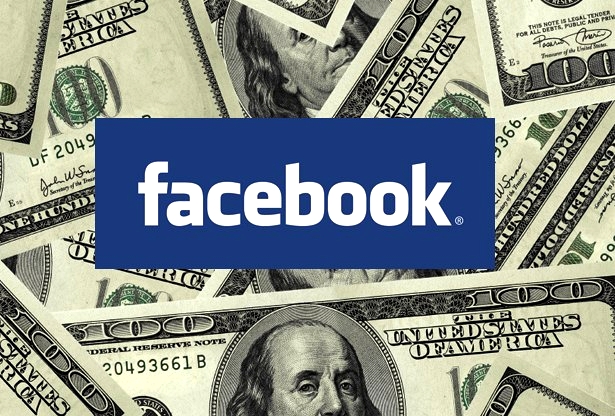
Mobile ad success helps Facebook deliver stunning Q2 results
Facebook has smashed all estimates in its earnings and revenue report this week, largely thanks to its robust mobile ad business.
The results slapped down any niggling doubts among critics about the social network's ability to transform itself from a simple communication website to a money-making juggernaut.

Do Not Track is bolstered by EFF's Privacy Badger extension
Online security and privacy are hotter topics than ever. Just this weekend, Edward Snowden made an appearance at the Hope X 2014 hacker event, and called for those in attendance to help make encryption tools easier to use. Another fierce advocate of online privacy is the EFF (Electronic Frontier Foundation), and today the group released a beta version of Privacy Badger, a beautifully named extension for Chrome and Firefox designed to stop a number of tracking techniques used online. The idea of tracking cookies is something that will be familiar to most, but tracking takes many forms, including advertising and social media. Privacy Badger aims to block this tracking.
Peter Eckersley, EFF Technology Projects Director, said: "Widgets that say 'Like this page on Facebook' or 'Tweet this' often allow those companies to see what webpages you are visiting, even if you never click the widget's button. The Privacy Badger alpha would detect that, and block those widgets outright. But now Privacy Badger's beta version has gotten smarter: it can block the tracking while still giving you the option to see and click on those buttons if you so choose".

Wilson's Weekend Whine: Snowden's call for online encryption is sad but necessary
It was quite a coup for HOPE (Hackers On Planet Earth). At the 2014 hacker event, Hope X, in New York City this weekend, Edward Snowden delivered a speech to those in attendance, advocating the use of encryption online. The former NSA analyst was not at the event himself -- he's still holed up in Moscow -- but he called on those present to help to protect privacy online. Speaking via a video link Snowden said: "You in this room, right now have both the means and the capability to improve the future by encoding our rights into programs and protocols by which we rely every day".
It was a great piece of work keeping the presentation a secret. There were, of course, fears that Snowden's appearance would somehow be thwarted: "We had to keep this bombshell quiet til the last minute since some of the most powerful people in the world would prefer that it never take place." There were certainly risks involved, but it was a risk worth taking. "[Snowden's] revelations of the massive NSA surveillance programs confirmed the suspicions of many and shocked those who haven’t been paying attention".

Google does a 180 and allows fake names on Google+
Google is no stranger to upsetting people, and it certainly managed to do this back when Google+ launched three years ago. The social network that finds itself the butt of many jokes has long been criticized for forcing users to reveal their real names. But this policy is no more.
As well as reversing the real name requirement, Google has also apologized for the restrictions that have been in place over the past three years. The change of heart was announced, of course, in a Google+ post, and has been welcomed by the + community.

Is Russia on the verge of creating its own controlled, closed internet?
The idea of a closed internet is hardly new; turn your eyes to East Asia, and the Great Firewall of China looms large. The Chinese government is well known for the control it likes to exert over the levels of access its citizens have to the internet, and there have been numerous well-publicized cases of censorship and access being restricted to pages that refer to certain events in the county's history. The country is highly defensive of its image, and goes to great lengths to fight off western influence -- including going as far as banning Windows 8 on government computers lest machines furnished with Microsoft's most recent operating system be used for spying on the People's Republic of China. Now it looks as though Russia could be going down a similar route.
Russian parliament has just passed a law that requires internet companies to store data about Russian citizens within the county's boundaries. The move can be viewed in a couple of ways. It is no secret that the Russian government, and Vladimir Putin in particular, is no fan of social media -- social networks were used by Russians to voice their disapproval at Putin's activities. It is thought that the move to contain citizen's data without Russia is a bid to create a Russian version of China's closed internet.

The most popular stories on BetaNews this past week: June 29 -- July 5
Something of a quieter week this week -- perhaps because of Independence Day and preparations there for. Still, there was plenty of news to keep us busy, including the NSA releasing a transparency report -- for what it's worth. Facebook found itself in the firing line after it transpired that the social network had been conducting psychological experiments by meddling with users' newsfeeds. Security is an on-going concern in technology, but it's something we have tendency to think about only in relation to computers and smartphones. One of the latest targets for malware and attacks is the power grid, and it's hard to tell what sort of havoc could be wreaked.
Microsoft tried to do its bit for security -- arguably in a misguided fashion -- by taking control of dynamic DNS service No-IP, and accidentally taking out a number of legitimate sites in addition to those malware-related ones -- the intended targets. In more positive Microsoft news, enhancements were made to Office 365's collaboration options. Windows Phone is still struggling in the smartphone market, but Microsoft will be hoping that this month's launch of Windows Phone 8.1 will help to improve things -- will the addition of folder support be enough? Looking further into the future, Joe pondered what Microsoft should do with Nokia. He also decided to give Windows another chance, helped along by his new Surface Pro 3.
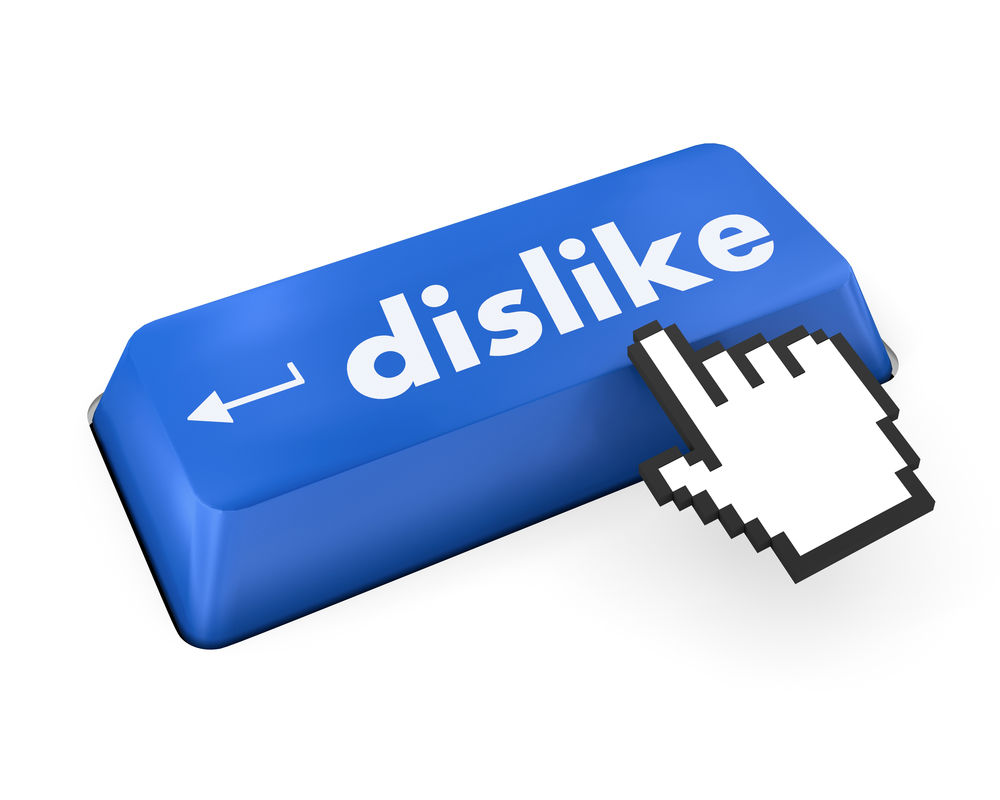
Facebook faces official complaint over deceptive newsfeed experiment
The revelations about Facebook's emotional experiment with users' newsfeeds back in 2012 has seen the social network fighting off a torrent of criticism. Users were upset to learn that the content of their newsfeed may have been manipulated as researchers tried to determine the effects exposure to positive and negative newsfeed content had on users' subsequent output. Now an official complaint has been lodged against the social network by thee Electronic Privacy Information Center. Epic filed a complaint with the US Federal Trade Commission, alleging that "the company purposefully messed with people’s minds".
There are several lines of attack in the complaint, but the main thrust is that Facebook neither obtained permission from the 700,000 affected users, nor informed them about what was happening. Epic also complains that Facebook failed to warn users that their data would be shared with researchers at Cornell University and the University of California. The complaint points out that "at the time of the experiment, Facebook was subject to a consent order with the Federal Trade Commission which required the company to obtain users' affirmative express consent prior to sharing user information with third parties".
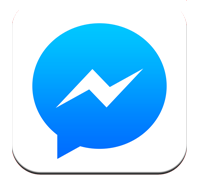
Facebook Messenger update includes new dedicated iPad build
Facebook has unveiled Facebook Messenger 7.0 for iOS and Android, a major new version of its dedicated messaging app for Facebook users.
Version 7.0 is notable for being the first version to include a native iPad build, coming three years after Facebook originally acquired the app’s forerunner, Beluga. The app also includes improvements to its video functions.

Facebook gives with one hand and takes with the other
Social networks are funny beasts, and this is certainly something that's true of Facebook. The site has a patchy history with regard to user privacy, and there are constant complaints about how personal content is used, who can gain access to it, and the privacy settings that are in place. But like all modern companies, Facebook likes to be seen listening to its customers -- or at least appear to listen. A recent example of 'listening to the people' is Facebook's reaction to the #FreeTheNipple campaign which ultimately led to the site bowing to pressure and permitting photos of breastfeeding to be published. There have also been numerous instances of responding to complaints and making privacy settings easier to control.
Like Microsoft, Google, Yahoo, and even the NSA, Facebook has released transparency reports that detail data requests and the like. Transparency reports are something that users all but demanded, and delivering them is excellent PR for the companies involved. Now Facebook is taking things up a notch, fighting for users' rights in court. Earlier this week it emerged that the social network is fighting a US court order which forced it to hand over user data. The data was requested as part of an investigation into benefit fraud. Facebook complied but complained that it was a violation of the Fourth Amendment.

The most popular stories on BetaNews this past week: June 22 -- 28
The battle for dominance between Microsoft and Google continued, with Microsoft offering a huge storage boost for Office 365 and OneDrive users. This was quickly trumped by Google later in the week at 1/0 2014, when the company announced unlimited storage for Google Drive for Work users. Microsoft is basking in the glory of being heralded as cooler than Apple by Joe -- and stunts like offering cashback deals to sway MacBook Air owners into switching into Surface Pro 3 certainly helps. Microsoft opened a new store on Long Island, while Google branched out into new territory with a trial run of a new domain registration service. Microsoft also ventured into new waters with its first Android smartphone, the Nokia X2.
In something of an interesting twist, Microsoft opted to use Opera Mobile as the default web browser. Opera is also returning to Linux after the surprise release of Opera 24 Developer. Linux Mint 17 "Qiana" KDE was also released. Linux also managed to hit the headlines for facilitating the hacking of Google's Nest thermstats. If this hasn’t put you off, Logitech added support to its Harmony remotes.

What we can learn from Facebook's 30 minute outage
Facebook is at the heart of delivering applications to a generation of content-hungry consumers, who expect short, intense experiences and flawless execution when they engage with brands. Because of this, companies like Facebook invest millions to ensure their platforms are robust enough to withstand almost any situation.
Apps look simple to the user, but under the hood they are often incredibly complex. When someone Likes a post on Facebook or places a comment, a single click triggers millions of lines of code and activates thousands of servers, so managing these applications is challenging.

#FreeTheNipple campaign leads to breastfeeding nipple-shot ban reversal by Facebook
Facebook comes under fire for all manner of things -- it's just part and parcel of being a social network. When users are not up in arms at the site's privacy policies, they are found voicing their disapproval at the types of content they're not allowed to publish on their timelines. There are lots of types of pictures that are frowned upon, and parents were upset to find that many of the photos they posted fell foul of Facebook's moderators. Facebook's Community Standards have never included a stated ban on breastfeeding pictures, but those that included glimpses of nipples were often swiftly removed. A well-publicized campaign that used the hashtag #FreeTheNipple seems to have had the desired result.
As noticed by The Independent, there has been a softening of views as Facebook Moderators are now encouraged to consider the context in which nipples appear in photographs. The Community Standards state "Facebook has a strict policy against the sharing of pornographic content and any explicitly sexual content where a minor is involved. We also impose limitations on the display of nudity". But there is the caveat that "we aspire to respect people’s right to share content of personal importance, whether those are photos of a sculpture like Michelangelo's David or family photos of a child breastfeeding".
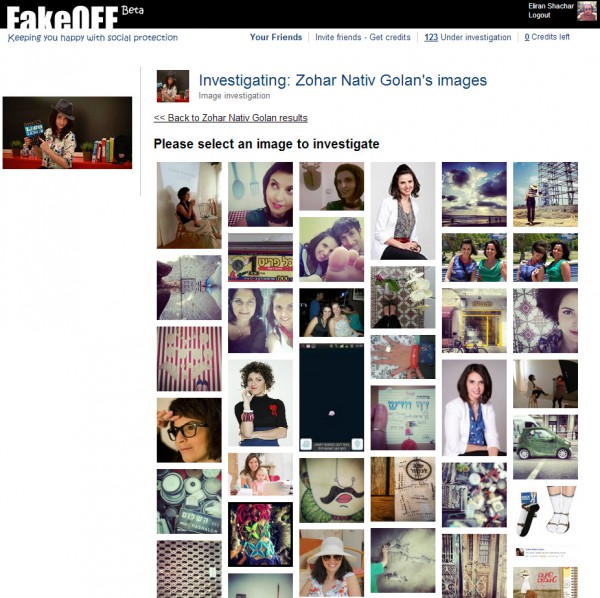
FakeOFF helps you spot the fiendish Facebook fakers
Back in 2012 Facebook estimated in its official company filings that almost nine percent of the accounts on its system broke the service's rules in some way. That may not sound like many but the sheer number of Facebook users means it accounts for some 83 million problem accounts.
Some of these might simply be duplicates but others have a more undesirable purpose like spamming, distributing malware or grooming minors. Until now the only way of steering clear of the fakes was by keeping your wits about you and looking for tell tale signs like recent join dates or unfeasibly model-like profile pictures.

Facebook Messenger for Windows Phone gets new features
As a regular Facebook Messenger user, I prefer my Google Nexus 7, instead of my Nokia Lumia 920, to chat with other people. It is not due to the larger screen size, but because the Android app feels so much better than the Windows Phone counterpart. The former is fast, totes all the greatest features Facebook Messenger offers, and comes with chat heads, which are both cool and useful.
Thankfully, Facebook Messenger for Windows Phone is delivering a better experience with each update it receives. It may not happen as often as I would like, but the popular social network is slowly improving its offering, with the latest version adding some much-needed changes.
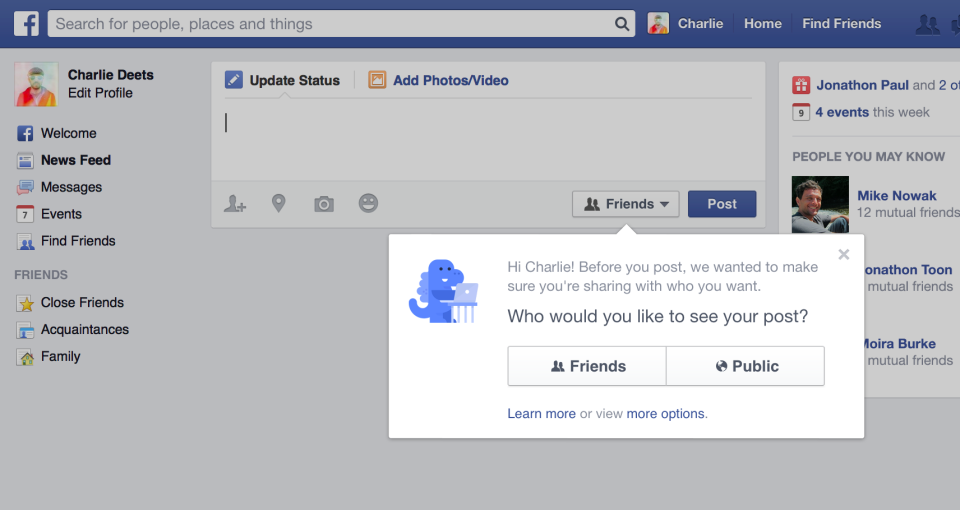
Facebook listens to feedback and tightens up privacy settings -- a bit
Privacy. It's something that we're all concerned about, particularly online. Facebook is one of many companies that comes in for scrutiny and criticism for the way it handles user privacy, and there have long been complaints about the fact that statuses and uploaded photos are made publicly accessible by default. Today that changes. After years of pestering, Facebook has listened to its user base and changed the default visibility setting to "Friends only". At least this is the case for brand new users.
Anyone signing up for a new Facebook account -- can there be many people left who do not yet have one? -- will be able to avoid accidentally sharing private photos with the world. "Going forward, when new people join Facebook, the default audience of their first post will be set to Friends. Previously, for most people, it was set to Public," says Facebook in a blog post. The first time a post is made, users will be asked whether it should be made public or limited to a smaller audience. If no selection is made, it will default to Friends.
